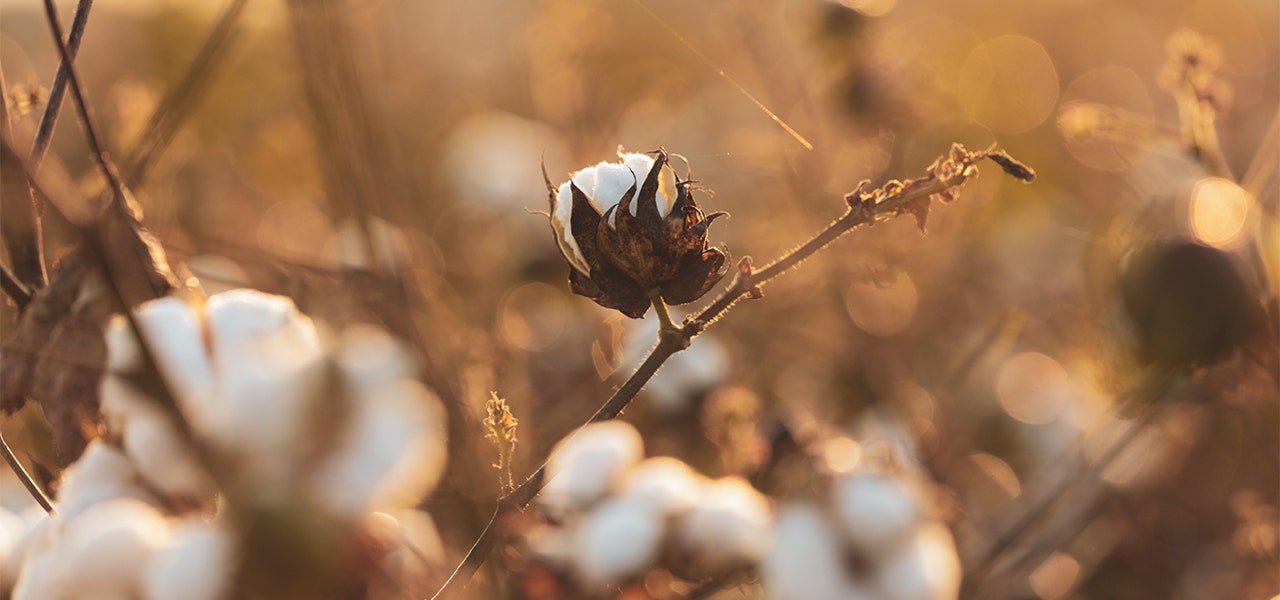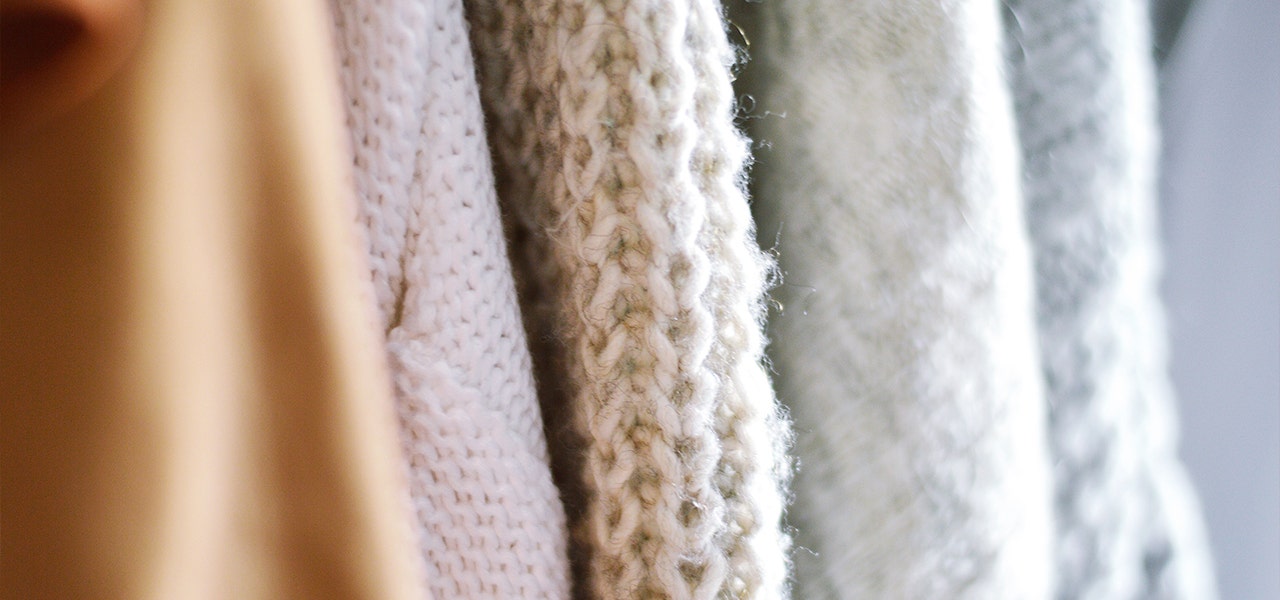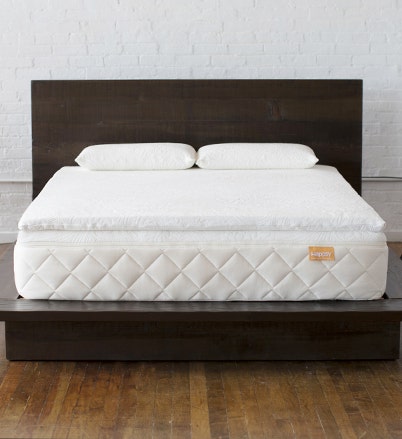
You want to be sustainable while you sleep, and we commend you! You want to be comfy, too. Because let’s be honest, comfort is everything when you climb into bed at night.
What you sleep on is incredibly important to your own well-being and the planet’s – a certified organic mattress is a must. But, what you sleep IN matters quite a bit, too. We’re talking about your pajamas! Whether you’re a hot sleeper or someone who prefers snuggly layers, the materials your PJs are made from go a long way in how comfortable you feel.
Of course, materials – and how they’re manufactured – are also the dealbreaker when it comes to the sustainability of your sleepwear. So what’s the best fabric for comfortable, eco-friendly pajamas? We'll save the suspense: organic cotton! Here's why.
What makes sustainable fabrics so sustainable?
Let’s take a minute to consider the word “sustainable.” It’s become a bit of a buzz word in recent years, hasn’t it? So, what does sustainable really mean in terms of fabrics?
While there is no such thing as a 100% sustainable fabric, some are significantly better than others. Fabric production accounts for a large percentage of the global carbon emissions caused by humans, which makes accountability to our Earth a critical matter.
Sustainable fabrics are grown and produced in a way that limits their impact on both the environment and people. When determining whether a fabric is sustainable or not, experts look to factors such as:
- Where and how is the material grown/produced?
- How many resources are used to produce the fabric?
- What’s the life cycle analysis from start to finish?
- What’s the fabric’s potential to harm human health?
Why certified organic cotton is a must!


Before we dig into why we chose organic cotton, a quick note on what that means, too. Conventional (AKA non-organic) cotton is one of the most widely produced fabrics in the world. Unfortunately, conventional cotton poses many risks to the environment and to you. In fact, it’s earned the nickname “the world’s dirtiest crop” – and with good reason. From heavy pesticide use to intense water demands to unfair worker treatment, so much is wrong with conventional cotton.
NOT so with organic cotton! Here’s a helpful tip when shopping – looks for certifications. Similar to gluten products, where items labeled “gluten free” may still contain trace amounts of gluten unless they are certified gluten free, organic cotton is only 100% organic when certified. Your safest bet is to look for the Global Organic Textile Standard (GOTS) certification when buying anything made from cotton (including your mattress!). This ensures organic integrity from farm to finished product.
5 Reasons we love organic cotton for eco-friendly PJs
When it comes to sustainable pajama materials, organic cotton is our top pick! It’s derived from cotton plants grown from non-GMO seeds on organic farms and then ginned, spun and woven without the addition of toxic dyes or treatments. What’s not to love?
1. Better for the Earth
Organic cotton is grown using sustainable farming practices. The most obvious distinction is that it doesn’t use any of the toxic pesticides and herbicides that pollute the Earth’s natural resources. But there’s a lot more to it! Organic cotton farmers also respect the soil with regenerative farming practices, like crop-rotation and soil-building techniques that support healthy biodiversity and replenish the soil. Not to mention most organic cotton relies on natural rainfall, which dramatically reduces its impact on water and energy stores.
2. Better for your health
Remember those toxic pesticides? Yeah … they can be just as harmful your health as they are to the insects they are designed to destroy. For starters, pesticides are a known carcinogen. Exposure to pesticides has also been linked to a number of serious health issues, like birth defects, reproductive issues, nervous system damage, impaired memory and more. Organic cotton doesn’t contain toxic bleach or harsh dyes, either, which can be absorbed by the skin.
3. Better for the growers
Conventional cotton farmers are exposed to unethical working conditions – including the health risks of repeated pesticide exposure. What’s more, many conventional cotton manufacturers in other countries endorse child labor, force long hours and do not pay their farmers fair wages. You’ll sleep better knowing your purchases DON’T support these conditions.
4. Better for hot sleepers
Are you a hot sleeper? Whether this is due to a hormonal imbalance, a certain medication, or any number of reasons, the materials you sleep on and in can offer relief. Organic cotton is an excellent fabric choice for pajamas because it’s breathable and lightweight. It won’t make you feel hot and sweaty like many synthetic fabrics can, and organic cotton can even help regulate your temperature while you sleep.
5. Better for any weather
Organic cotton is also soft, ideal for layering, easy to wash and durable. This makes it the perfect pajama fabric for any time of year or type of weather. If you like soft and stretchy, you can buy jersey cotton jammies. In the cold winter months, cotton flannel is cozy and warm. Seersucker cotton is light and airy for summertime. You get the point – you’ve got options!


Other sustainable fabrics to consider
Organic cotton is our favorite, but there’s always more than one way to make greener choices. Below are a few more sustainable fabrics worth considering for your sleepwear. Just keep in mind that these options may include dying or chemical processing or may be blended with a non-sustainable fabric. With any kind of shopping, it’s always wise to read the label before you purchase.
- Organic Wool – Wool can eco-friendly option ideal for colder months and the winter season.
- Organic Hemp – This plant-based fabric is durable and naturally insulating.
- Organic Linen – Derived from flax, linen is a lightweight, comfy material. When left undyed, it’s also completely biodegradable!
- Silk – This natural fabric from the silkworm is soft, luxurious and renewable.
Pajama fabrics to avoid – for your health and the planet’s


There are some fabrics that should be strictly off-limits – especially when it comes to sleeping in them. Here’s our top list of PJ fabric no-no’s:
- Polyester – This is a commonly used synthetic and non-biodegradable plastic fiber that typically includes the use of chemical dyes.
- Nylon – This fabric is a polymer made from petroleum and coal. Its production requires intense use of energy and results in nitrous oxide released into the environment.
- Rayon – Also known as viscose, this fabric is naturally occurring and is made from the pulp of fast-growing plants and trees. However, the production of turning this pulp into usable fabric is far from environmentally friendly. It often includes the use of harsh chemicals.
- Bamboo – Turning a wood fiber such as bamboo into a soft fabric consists of a large production process. Although there are ways to produce bamboo fibers in a sustainable way, they are very expensive and rarely available commercially.
Right! Time to sort through your pajama drawer! We hope this has helped and inspired you to do some sustainable shopping or maybe even throw a pajama party. Remember, you can’t lose with certified organic cotton.


